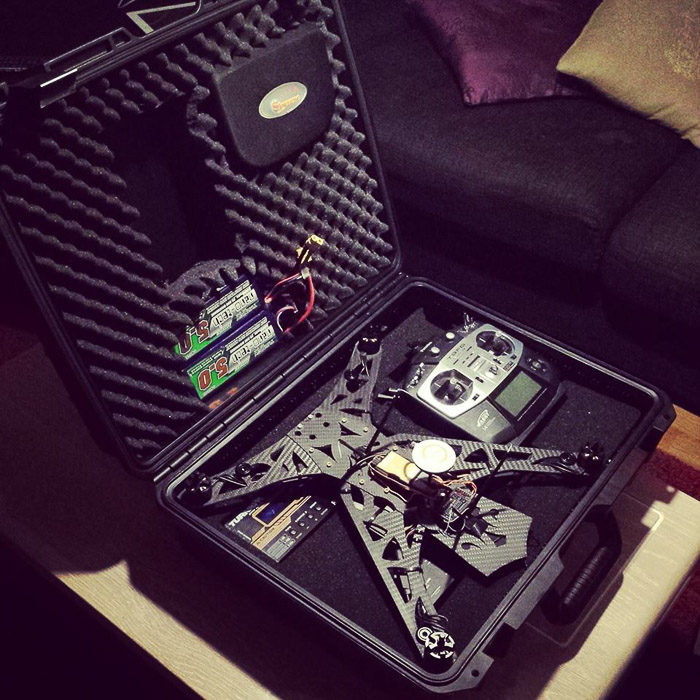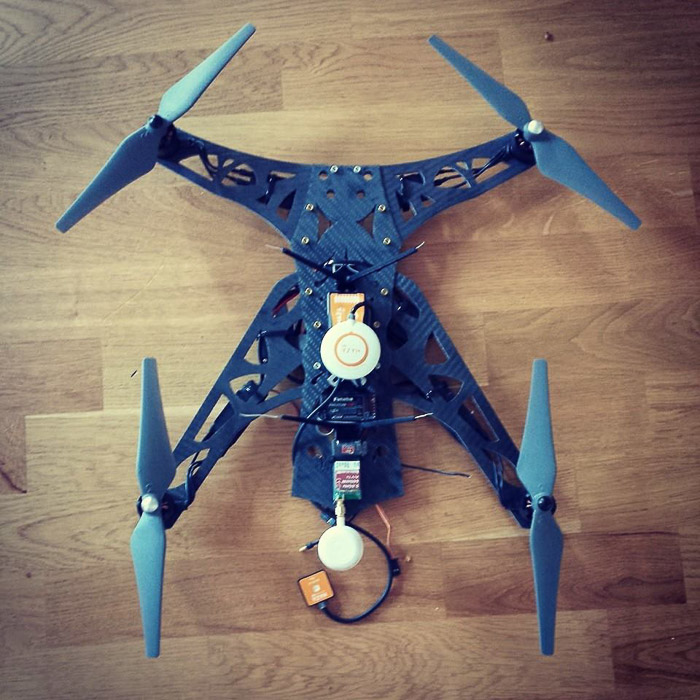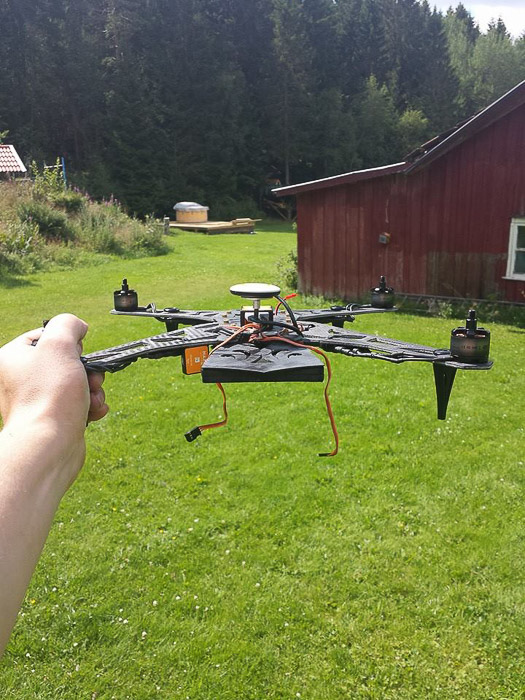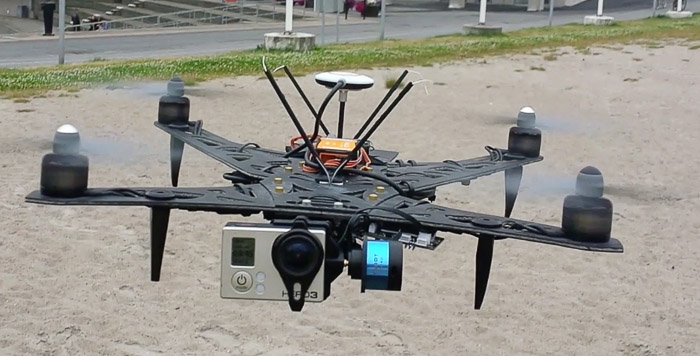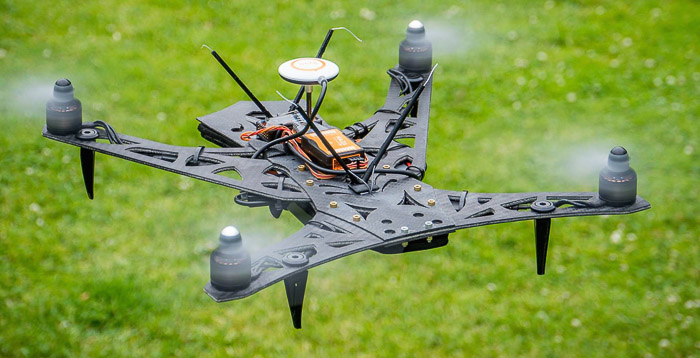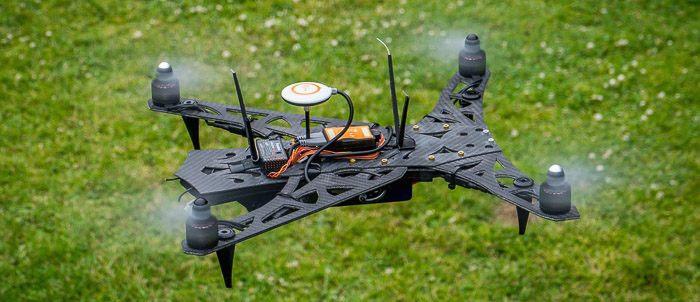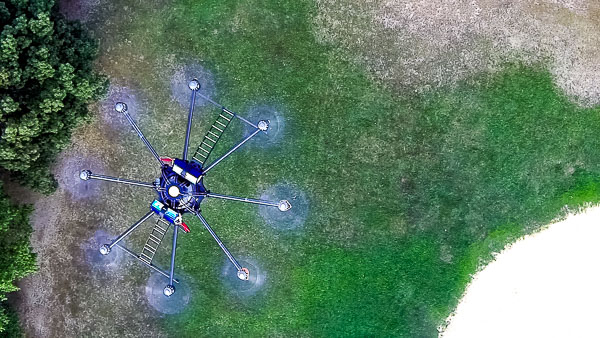
The FAA just released the most relaxed proposal to date regarding the future rules and regulations which will govern the use of civilian Drones for commercial operations. You can read the FAA’s proposed drone regulations here: FAA Drone Rules Proposal
As a commercial pilot and CFII, I’m a little concerned to say the least. I feel I need to address this directly with the FAA, so here’s my quick letter to any FAA employee who may find this post:
———————————–
Dear FAA,
Just to be clear: You are proposing that someone without any actual aeronautical rating will be permitted to fly a drone for COMMERCIAL purposes, with a weight of up to 55 POUNDS, at a TOP SPEED of 100MPH, just so long as they pass a government designed and administered written exam and agree as gentlemen/women to keep that beast below 500ft and clear of airspace. Do you think that safe operations can be assured without further aeronautical training and be monitored effectively via the honor system?
Signed,
Worried Pilot
———————————–
A few things to note if these proposed regulations become real regulations:
- 55LBS will dissipate a large amount of energy when it comes down from 500 feet at 100mph.
- FAA written exams (even for real pilots) aren’t very challenging. A real pilot proves his/herself in the aircraft and by displaying competence in the presence of several other people who possess experience and judgement.
- People without a background in real aviation lack an understanding of and respect for the risks associated with flight. This lack of understanding and knowledge will put lives at risk unnecessarily in the air and on the ground.
- Model aviation has been around for many, many years. Never in the history of model aviation has it been so easy for anyone who feels like it to put a Drone into the air. Like real aviation, flying models used to take time to learn and gain an understanding of. This helped foster competent operators with experience and skill. This is absent when we’re speaking about Drones. People with little to no experience are afforded advanced capabilities that they could never before have had without putting in a lot of time to learn. This is important to consider.
- Every hipster with a few dollars to their name will be out there starting some sort of Drone business. Yes, buying a Drone will instantly turn people into aerial photographers and videographers, news reporters, and emergency response personnel.
- Media companies ranging from television, radio, and blogs will have Drones. I imagine evening news will never be the same. Neither will accident sites. As if reporters weren’t irritating enough already.
Now while I may surely rub some people the wrong way, I do believe I’ve made some objectively valid points in this text which should not be ignored by the public or the FAA.
In it’s initial proposal(s) the FAA was considering the requirement of a Private Pilot’s license for individuals that intend to operate Drones commercially. I think this is a good idea (yeah, yeah – easy for me to say because I have my ratings). Some people voiced their opinion that this was financially restrictive and that many would be barred from entry into the business of flying Drones due to the expense. I do understand that position for sure – it is costly to get your Private Pilots License. However, I think that real aviation learning and experience would be invaluable in adding to the safety of operations conducted by the commercial drone pilots of our present and near future.
Aviation has always had barriers to entry. I think that’s a good thing. Imagine what would happen if they release the flying car and anyone could fly to work. I’d ride a bicycle and look out for falling cars. In the case of flying Drones for commercial purposes, if a full blown license it too expensive and too much work – maybe require applicants to solo at least.
Nothing changes one’s perspective of aviation like being alone in an airplane for the very first time without a flight instructor. His/her voice is still in your head, but the only one up there in god’s great heavens that will get your ass safely on the ground is you.
It appears our friendly neighborhood FAA has launched not only this video, but a website dedicated to drone pilots and drone flight operations – http://www.knowbeforeyoufly.org/
On this website the FAA offers guidance to drone operators. The guidelines are broken up into recreational, commercial, and public service sector flight operations. As to the legal force and enforceability of the guidance provided on this website – well, I don’t know. I don’t think these are laws. I don’t believe they’re currently in the FAR’s. I also question whether this website will actually reach the majority of the members of it’s intended audience. Will a tourist from Canada who buys a DJI Phantom at B&H in Manhattan be held to these rules? Who is responsible for disseminating this information? Who is to blame if the information doesn’t reach the owner of a particular make/model or slapped together home built version of a MultiRotor.
Finally I am confused as to the enforceability of of these rules? Guidelines? What exactly do we have here FAA? Who’s responsible for what? Will the NYPD now be tasked with enforcing grey federal rules, laws, text on a website? Where do we seek the answers to these esoteric questions?
I’m still laughing, but seriously – things need to be crystal clear to everyone and currently they are not. The FAA seems a bit confused in their actions and decisions – and rightly so. We are at a point where the technology has quickly sailed past the current aviation laws, rules, and regulations. It is a difficult moment and I’d say the primary and most important concern regarding all drone operations is to insure the safety of those in the air and on the ground.
If you concentrate on those 2 things, you’ll know what you have to do next my fearless FAA rule makers. What you’ve currently implemented is thin, difficult to interpret, and questionable to enforce. That is my humble opinion.
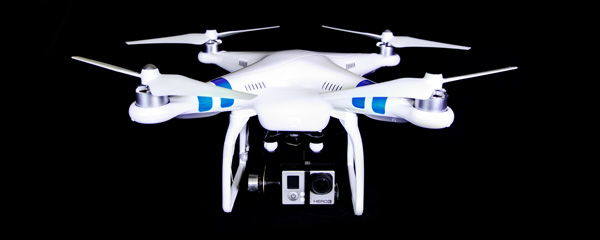
Ok folks, at this point there is really no way to fight it – so I am going to address this directly. Why, you ask?
Well, gone are the times when the only choices for getting up into the air with a MultiRotor Drone were either: 1) Fork over $10k+ for a ready to fly Draganflyer, or 2) Do all the research and learning necessary and then build one yourself. At this point in time a novice with no knowledge of radio control or Federal Aviation Administration (FAA) rules and regulations can order themselves up a DJI Phantom 2 Quadcopter for $679 and be in the air the same day. It is for those folks that I’m writing these 10 tips. While my headline here is meant to be a bit funny, the real intent of this list is to provide some practical tips that will keep people who are new to all this and those around them safe, and having fun. Fun is the point, isn’t it?
Here’s the short list on how not to be “one of those DJI Phantom guys(or girls)”:
1. Please understand that flying is a privilege and not a right.
2. Never fly over people.
3. Read your entire manual and the pilot training guide published by DJI before taking your first flight.
4. Do not rely on GPS position hold, return to home, or altitude hold to get you out of a bad situation.
5. Crawl before you walk. Or, flap those little wings before you go supersonic.
6. Don’t take your Phantom to the nearest well known landmark and go flying with it.
7. Please, pretty please – do not claim to run an aerial photography or video business the day after you purchase you Phantom.
8. Be aware of real air traffic in your area and stay below 400′ above ground level (AGL).
9. When you’re out flying and strangers ask you questions, just be cool.
10. Keep yourself and others clear of the propellers.
Here’s the long version:
1. Please understand that flying is a privilege and not a right. At this point in time hobby flying and commercial drone usage of our lightweight MultiRotors is a topic that is under attack by the media, politicians, and the Federal Aviation Administration. We need to be on our best behavior when in public and we must respect the fact that our privilege to fly may be heavily restricted if our actions are thoughtless. You are responsible for any damage or injuries caused by your Phantom, so live up to that responsibility.
Read more →
I haven’t posted in quite awhile and I’ve never posted a product for the sake of posting a product until now. I’d like to state that I am not being compensated in any way by Ecks Multirotor and that this is NOT a paid advertisement. I’m posting this because the new EXO 440 Recon frame caught my attention and I think it’s definitely worth a look. Cameron from Ecks is a great guy and he does some interesting and original work in the area of frame design so I always check out his Facebook Page to see what it is he’s up to at the moment.
In the past Cameron was kind enough to sell me a prototype 2-axis gimbal for my Sony NEX5R. I bothered him about it because he was the only one on the market making a gimbal out of 2 solid pieces of billet aluminum. It is a piece of artwork. That said, his work is top notch and I urge you to check out his website and vimeo page when you get a chance and contact Cameron if you have any questions about this extremely well designed frame.
Now lets get to the Multirotor at hand – the EXO440 Recon Class Quadcopter. Specifications are as follows:
440mm Lightweight Carbon Fiber Frame
NAZA V2 + GPS
DJI E300 Propulsion System with self-tightening props
Landing Gear
Antennae Holders
Foam protective bottom
Battery Straps
Flight time – up to 23 minutes
- Ecks 440mm quadcopter drone, perfect for fpv
- Ecks 440mm quadcopter drone, perfect for fpv
- Ecks 440mm quadcopter drone, perfect for fpv
- Ecks 440mm quadcopter drone, perfect for fpv
- Ecks 440mm quadcopter drone, perfect for fpv
- Ecks 440mm quadcopter drone, perfect for fpv
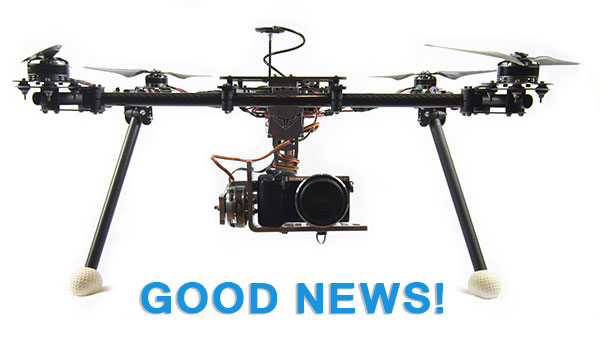
Update: March 7th, 2014 – The FAA will be filing an appeal. Read the info in their link to UAS Operations as well. They have valid points and I may have sounded the celebration alarm a bit too soon.
Commercial Use of Drones is Now LEGAL!
A federal judge has ruled today that commercial drones are legal in U.S. skies, citing that the Federal Aviation Administration has not made any legally enforceable rules against such operations. Great news for us photographers/cinematographers! We can now charge for work without fear.
To be perfectly clear, this ruling applies to the hobby RC type drones you see here on this website – NOT to full sized military drones. So calm down naysayers, no one will be flying over your house in a full sized turbine aircraft tomorrow morning. That said, they may well be flying over the house your neighbor put for sale to take photos for the real estate company handling the listing.
The ruling came out of the FAA’s case against Raphael Pirker (we know him as Trappy). The FAA attempted to fine Trappy $10,000 for the conduct of his flight operations during the filming of a commercial for the University of Virginia. The case has been going on for some time and Trappy was defended by our friend and fellow local flyer, Brendan Schulman. Mr. Schulman’s main argument was based on the fact that the FAA had no enforceable regulation or rule applying to model aircraft or in classifying model aircraft as Unmanned Aircraft (UAS) according to current FAA guidelines. The full decision text is here: FAA v. Raphael Pirker.
The FAA still has the opportunity to appeal the decision – and if it does, the case will go to the Washington D.C. U.S. Court of Appeals.
My take on what this means for those of us out there that want to make some money with our lightweight flying machines: Read more →
